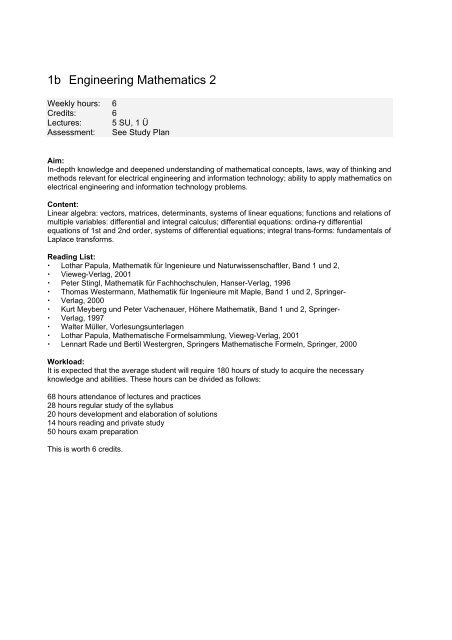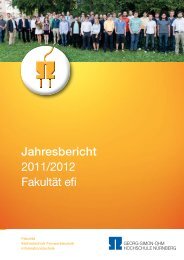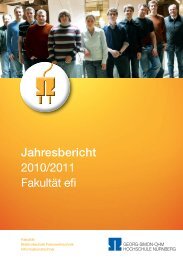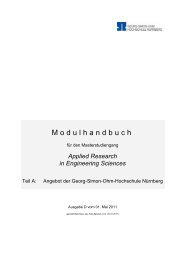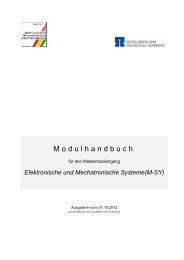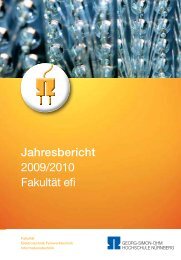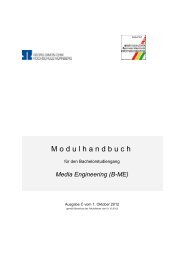Module descriptions Bachelor degree course - Elektrotechnik ...
Module descriptions Bachelor degree course - Elektrotechnik ...
Module descriptions Bachelor degree course - Elektrotechnik ...
You also want an ePaper? Increase the reach of your titles
YUMPU automatically turns print PDFs into web optimized ePapers that Google loves.
1b Engineering Mathematics 2<br />
Weekly hours: 6<br />
Credits: 6<br />
Lectures: 5 SU, 1 Ü<br />
Assessment: See Study Plan<br />
Aim:<br />
In-depth knowledge and deepened understanding of mathematical concepts, laws, way of thinking and<br />
methods relevant for electrical engineering and information technology; ability to apply mathematics on<br />
electrical engineering and information technology problems.<br />
Content:<br />
Linear algebra: vectors, matrices, determinants, systems of linear equations; functions and relations of<br />
multiple variables: differential and integral calculus; differential equations: ordina-ry differential<br />
equations of 1st and 2nd order, systems of differential equations; integral trans-forms: fundamentals of<br />
Laplace transforms.<br />
Reading List:<br />
� Lothar Papula, Mathematik für Ingenieure und Naturwissenschaftler, Band 1 und 2,<br />
� Vieweg-Verlag, 2001<br />
� Peter Stingl, Mathematik für Fachhochschulen, Hanser-Verlag, 1996<br />
� Thomas Westermann, Mathematik für Ingenieure mit Maple, Band 1 und 2, Springer-<br />
� Verlag, 2000<br />
� Kurt Meyberg und Peter Vachenauer, Höhere Mathematik, Band 1 und 2, Springer-<br />
� Verlag, 1997<br />
� Walter Müller, Vorlesungsunterlagen<br />
� Lothar Papula, Mathematische Formelsammlung, Vieweg-Verlag, 2001<br />
� Lennart Rade und Bertil Westergren, Springers Mathematische Formeln, Springer, 2000<br />
Workload:<br />
It is expected that the average student will require 180 hours of study to acquire the necessary<br />
knowledge and abilities. These hours can be divided as follows:<br />
68 hours attendance of lectures and practices<br />
28 hours regular study of the syllabus<br />
20 hours development and elaboration of solutions<br />
14 hours reading and private study<br />
50 hours exam preparation<br />
This is worth 6 credits.


